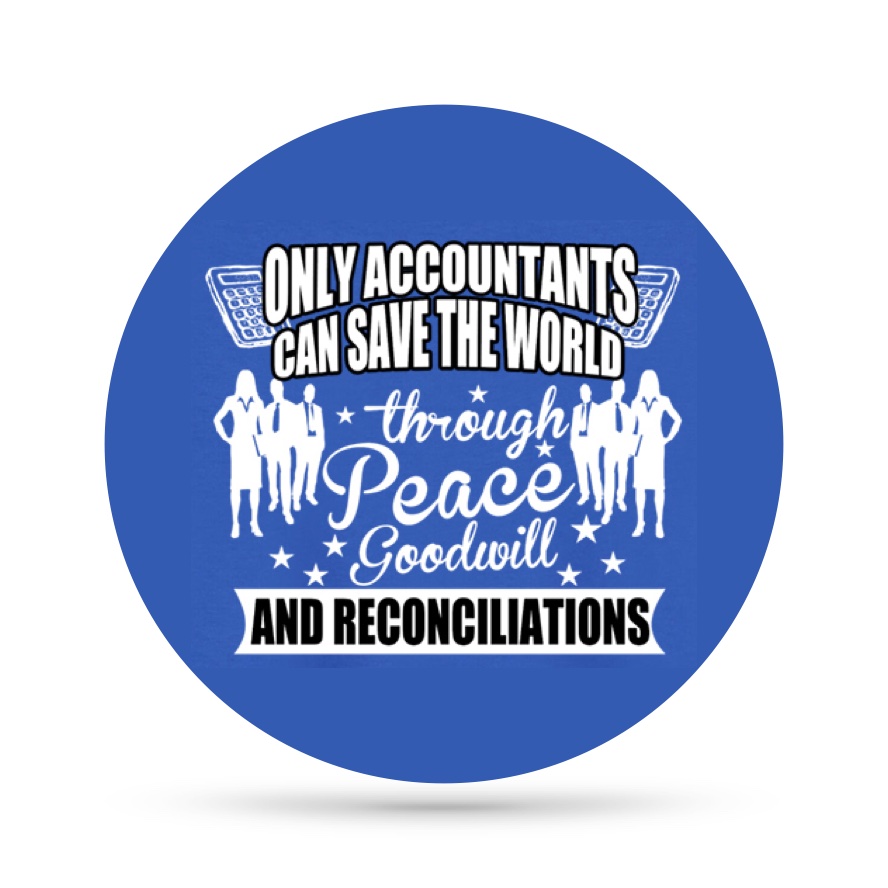Can accountants save the world?
When it comes to tackling global warming, most people remember the attacks of a handful of groups who regularly make the headlines. In contrast, few realise the major impact that certain professions with a rather low profile can have on the quest for sustainable economic development at a global level. This is potentially the case for accountants!
“No news is good news” goes the old saying – the media are never going to make a big deal out of the trains running on time. Of course, punctual trains are not the most fascinating topic, although they do have an enormous impact on public transport users. In other words, a well-oiled machine only catches our attention when something goes wrong.
That’s one reason why it’s not easy to garner much positive news from the media or scrolling through social networks. It’s a fact – good news doesn’t attract much attention. We could be forgiven for wondering whether good news even constitutes news. Over fifty years ago, Marshall MacLuhan, a pioneer in media analysis, observed that real news is bad news. In other words, “no news is good news” can also be written the other way round: “good news is no news”. However, just because the media is not interested in something, doesn’t mean it is unimportant!
In other words, “no news is good news” can also be written the other way round: “good news is no news”.
Climate change and eco-anxiety
Climate change and the destruction of ecosystems and biodiversity are issues that attract broad media coverage, and quite rightly so. As climate catastrophes proliferate an increasingly large part of the population is today suffering from eco-anxiety – anxiety linked to climate change. There are two traditional responses to this anxiety: we lose the ability to act or we turn to radical activism.
Without wishing to suggest a remedy for this anxiety, the danger is that we become paralysed by negative thinking. Abandoning hope when faced with the extent of the problems, believing any effort to be in vain, and adopting a stance of passive resistance to adversity does not appear to be an efficient strategy. Unless of course we are seeking to emulate the tragic death of the rabbit frozen in the car headlights.
The other option of radicalisation does not seem to be a credible response for corporate action either, although it does have the merit of attracting attention. After all, even if company bosses are already sensitive to the issues, there is still much to do to further hone their awareness of the challenges of sustainability.
So what is the right response? Rise above the fray, adopt the long view and think about how far we’ve already come. Good news does not attract our attention but it exists nonetheless. Humanity’s progress is not measured by the pace of the daily media hype and well-intentioned innovations are mostly introduced without fanfare. However, if we take a step back and adopt the long view, it is possible to see that what was once considered impossible or even ridiculous has become reality. The rise in life expectancy represents a striking illustration of this reality.
The accountant – a key agent of change
Good news is not the only thing that people find extremely boring. One professional body also holds this accolade. Professionals passionate about files of calculations, financial statements and cash flows, obsessed by the idea of a properly balanced double entry system – bankers and accountants offer stiff competition for the award of most boring job in the collective consciousness.
And what if the environmental and social challenges of the business world are being played out in the dull grind of corporate accounting?
And what if the environmental and social challenges of the business world are being played out in the dull grind of corporate accounting? Today, the corporate world is obliged to consider climate change in its roadmap and its strategy in order to comply with the law, remain competitive, attract investors and respond to the expectations of clients and employees. Measuring exposure to climate risk, carbon footprint and environmental and societal impacts are strategic prerequisites for companies, as is identifying the opportunities of a sustainable economy. This is work that demands the skillset of a “climate accountant”!
In 1903, US Steel was the first listed company to publish an accounting report whose financial accuracy had been certified by an external auditor. At the time, the average investor had very little factual information available to support their investment choices: the share price, dividend and uncertified data on the turnover and earnings of the company under consideration. We had to wait another thirty years or so for audited financial statements to become a regulatory requirement and a guarantee of accuracy and transparency. Several decades more were required before today’s accounting standards became applicable (International Financial Reporting Standards, IFRS).
We need to ensure that corporate reports show both the state of a company’s finances as well as how it makes money.
The underlying idea that seems obvious today: we need to ensure that corporate reports show both the state of a company’s finances as well as how it makes money. In other words, we need to measure the physical flows as well as the monetary flows. The aim behind this is to enable stakeholders to understand both the return on capital and the way that natural and human capital are managed.
Simple materiality versus double materiality
In response to a fresh upsurge in the fight against the false promises of sustainable investment, regulators are rushing to harmonise standards and rules. Unfortunately, there are two divergent and opposing concepts. There is the Anglo-Saxon model of simple materiality versus the European model of double materiality.
The concept of simple materiality or financial materiality only takes into account information relating to the positive and negative impacts that human and natural capital have on the company. Meanwhile, double materiality also measures the impacts of the company on human and environmental capital.
From a scientific perspective, the debate has been clear-cut for a long time – double materiality must prevail. But the reality is quite a different thing, against a backdrop of competing business models between the Anglo-Saxon world and more heterogeneous models that include impacts on the planet and, as a minimum, a carbon balance sheet.
From a scientific perspective, the debate has been clear-cut for a long time – double materiality must prevail.
Climate-related standards and accounting
The discussion surrounding accounting standards requires a small aside on jargon and acronyms and the stakeholders focused on the issue. Created in 2021 by the IFRS board mentioned above, the International Sustainability Standards Board (ISSB) is dedicated to developing and promoting sustainability standards (IFRS-S or International Financial Reporting Standards on Sustainability) to allow investors to access information on the related risks and opportunities. Note that, to date, the IFRS-S have focused solely on simple materiality. However, constructing an economic system adapted to the limits of our planet cannot be undertaken without consideration of double materiality. The European Commission is currently the only body attempting to harness the concept of double materiality via the EFRAG (European Financial Reporting Advisory Group) initiative.
Whatever happens, the accounting profession is clearly undergoing a process of transition. Accountants are today major agents of change. Today, the focus is no longer on finding a circular reference in huge sheets of calculations, but instead, using accounting practises suitable to a circular economy. The risk of companies’ dependence on declining environmental resources or sub-standard working conditions and salaries must be highlighted and managed.
Who will have the greatest impact, accountants or the activists carrying out symbolic acts to raise the profile of climate issues in the media? Accountants look to have more real power as regards environmental and societal issues. Their work does not make the headlines, but their impact is enormous. Providing greater transparency for shareholders is becoming a prerequisite for companies and accounting rules consistent with this approach are being gradually rolled out on the issue of sustainability.
“Accountant for the climate” is an emerging profession and one that is closely related to corporate operational and strategy decisions. It is far from a boring job restricted to debits and credits in a T-account – each new generation views the world through a different prism to that of its parents. The current generation clearly has different targets, expectations and values, which are upending the perceptions we should have of our varying activities.
What’s the key takeaway from all of this? Accountants probably won’t save the world, but they can make a clear contribution to achieving this.
1 Peter Bakker is president of the World Business Council for Sustainable Development (WBCSD) and former CEO of TNT N.V.



 Mortgage
Mortgage Personal loan
Personal loan Savings
Savings